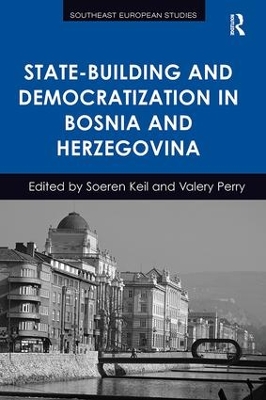Southeast European Studies
2 total works
In 1995 none of the political parties representing the peoples of Bosnia preferred a federal option. Yet, Bosnia became a federal state, highly decentralised and with a complex institutional architecture. This solution was imposed on them by international actors as a result of peace negotiations following the Yugoslav wars. Political parties in post-war Bosnia were not willing to identify with or accept the federation. The international community intervened taking over key decisions and so Bosnia and Herzegovina became the first state to experience a new model of federalism, namely 'imposed federalism' and a new model of a federal state, that of the 'internationally administered federation'. By combining comparative politics, conflict analysis and international relations theory Soeren Keil offers a unique analysis of federalism in post-Dayton Bosnia and Herzegovina. By exploring this model of 'imposed federalism' not only does this study greatly contribute to the literature on developments in Bosnia and Herzegovina it also re-evaluates comparative federalism in theory and practice. This study also offers important conclusions for similar cases, both in the Western Balkans region and the wider world, where international involvement and federalism as a method of conflict resolution in diverse societies becomes ever more prevalent and important.
State-Building and Democratization in Bosnia and Herzegovina
by Soeren Keil and Dr. Valery Perry
Published 3 March 2016
State Building and Democratization in Bosnia and Herzegovina details the post-Dayton evolution of the country over the last two decades. Carefully evaluating the successes and failures the book explores the slow progress of the democratization process and how key elites initially took hold of the state and its institutions and have successfully retained their grip on power, despite heavy international presence and reform attempts to counter-balance this trend. Bosnia and Herzegovina offers a useful lens through which to view international state-building and democratization efforts. International engagement here incorporated significant civilian and military investment and has been ongoing for many years. In each chapter international scholars and field-based practitioners examine the link between post-war events and a structure that effectively embeds ethno-national politics and tensions into the fabric of the country. These contributors offer lessons to be learned, and practices to be avoided whilst considering whether, as state-building and democratization efforts have struggled in this relatively advanced European country, they can succeed in other fragile states.

